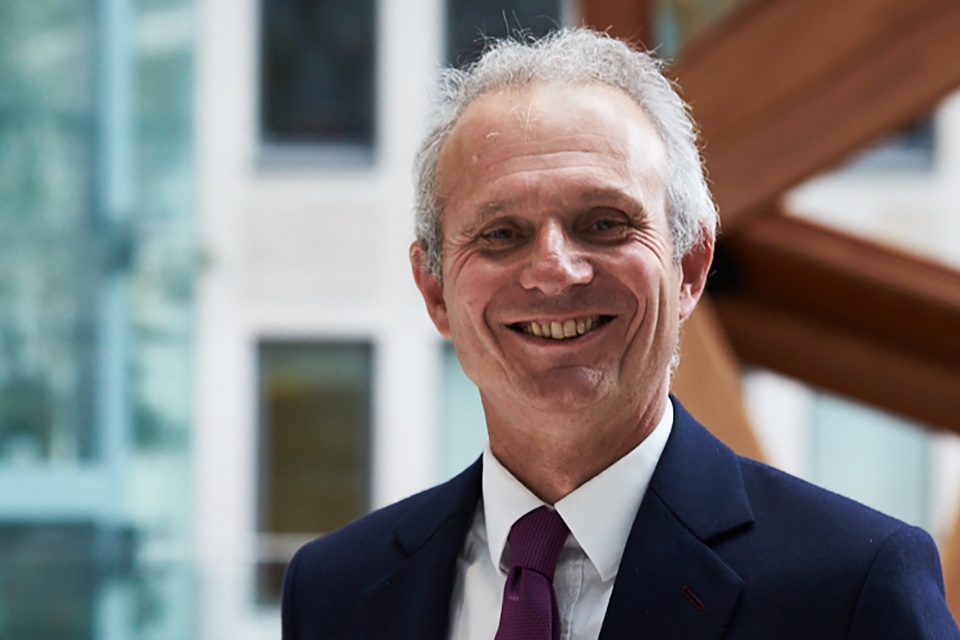UK engagement with Central Asia
Minister for Europe David Lidington has updated Parliament on the UK's plans to engage with the Central Asian countries, 20 years on from their independence from the Soviet Union.

In a written statement to Parliament David Lidington said:
“Last year the countries of Central Asia celebrated the 20th anniversary of their independence from the Soviet Union. 2012 marks two decades since the UK established diplomatic relations with these countries.
The Central Asian states - Kazakhstan, Kyrgyzstan, Tajikistan, Turkmenistan and Uzbekistan - were in many respects dealt a difficult hand at independence. Their mixed record in responding to the challenge of independence over the past 20 years, in a resource-rich but unstable and landlocked region, reflects that. Active and constructive UK engagement with these countries remains essential. They constitute a region of growing importance for the UK’s prosperity and security interests. We have a commitment to promoting the core values of rule of law, human rights and democracy that we hold dear and that we regard as the best basis for future stability and growth in this region. With our new Embassy in Bishkek opening in December 2011, we now have Embassies in all five countries.
Central Asia’s scope for economic development is considerable. We must proactively pursue commercial opportunities and seek to unlock the region’s energy potential. The UK is already among the largest international investors in Kazakhstan, and we are rapidly developing our trade relations elsewhere in the region: UK bilateral trade with Central Asia in 2011 was more than double that in 2010, standing at some £1.1 billion by November. We want this trend to continue. We also give priority, bilaterally and with our EU partners, to the diversification of energy supplies - including through the development of a southern corridor bringing gas from the Caspian region via Turkey to the EU. Visits such as that by My Honourable Friend the Minister of State for the Department of Energy and Climate Change to Kazakhstan in September 2011 are a key component in supporting our prosperity goals. We need more regular contacts of this kind with the region.
As another important element of the UK’s engagement, the Department for International Development continues to play an active role in the region. Their bilateral programme, set at £14 million per year, is helping to reduce poverty in the region through promoting sustainable growth and good governance, in particular in Kyrgyzstan and Tajikistan, and through building on the positive opportunities for regional development.
Central Asia is equally important to our security interests. We have a shared interest in regional stability and in achieving a stable transition and secure future for Afghanistan, which borders three of the Central Asian states. We welcome the constructive role the Central Asian states are already playing in helping secure Afghanistan’s long-term stability, including through infrastructure projects. We are keen to see them co-operate ever more closely with Afghanistan on such ‘connectivity’ projects and make their voices heard in regional dialogue. They can also play a key role in helping us support the International Security Assistance Force (ISAF) and UK forces in particular as we actively look for ways to improve our supply lines into and out of Afghanistan through the Northern Line of Communication. More broadly, we and the international community must engage with the Central Asian states on a range of security issues, including counter narcotics and border security, conflict prevention and crisis management work, counter-radicalisation, and some aspects of defence reform and co-operation, if we are to effectively promote wider regional security and stability. Ministry of Defence Ministers will be visiting the region shortly in support of UK security goals.
Underpinning our prosperity and security interests is our commitment to promote the UK’s core values in all our activities in the region. The Central Asian states will continue to face many challenges in this regard, and several of them have a considerable way to go before meeting their international commitments on human rights, democracy and the rule of law. We need to be clear both in recognising their deficiencies in these areas and in voicing our related concerns. But we also believe that, as in other parts of the world, the most effective way to address such concerns is through constructive engagement, both with governments and civil society in the region. Promoting international standards, working bilaterally and multilaterally to support the region as it seeks to reform and, when necessary, robustly raising our human rights concerns with the host governments will remain at the heart of what we do.”